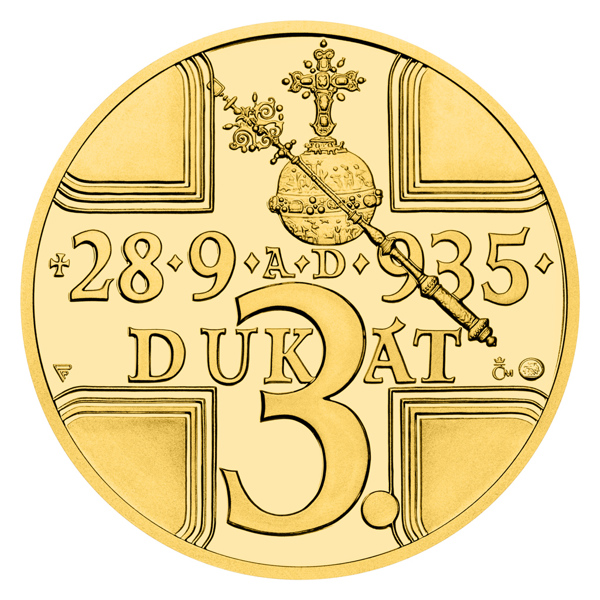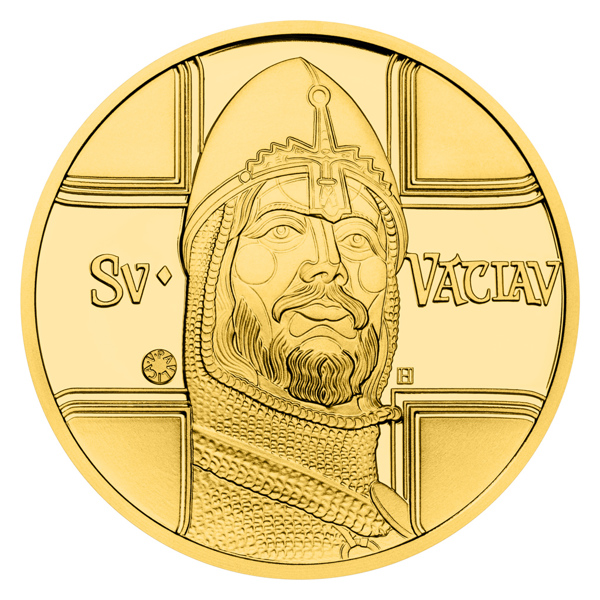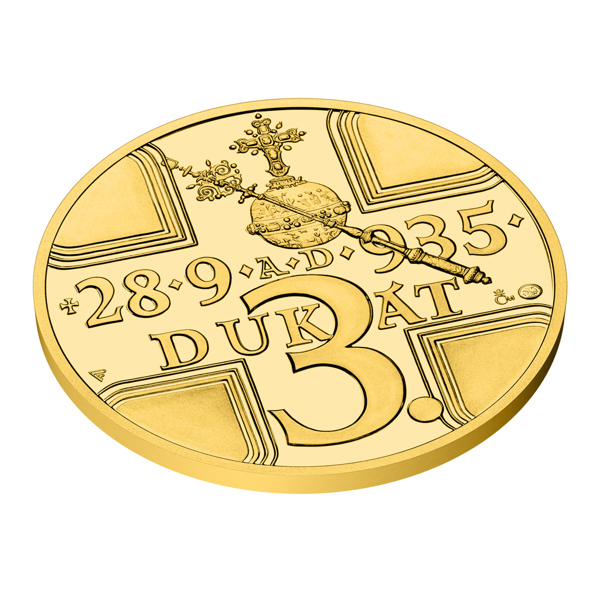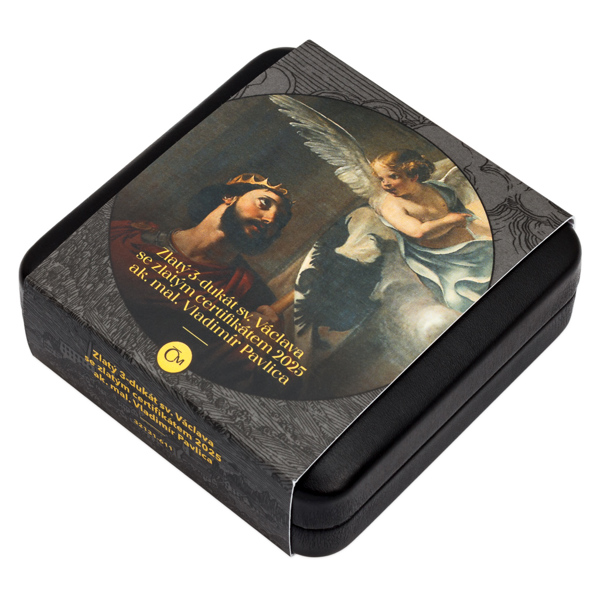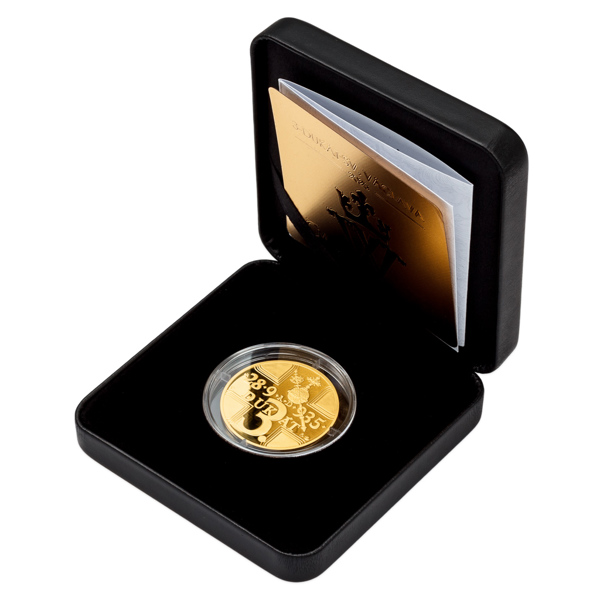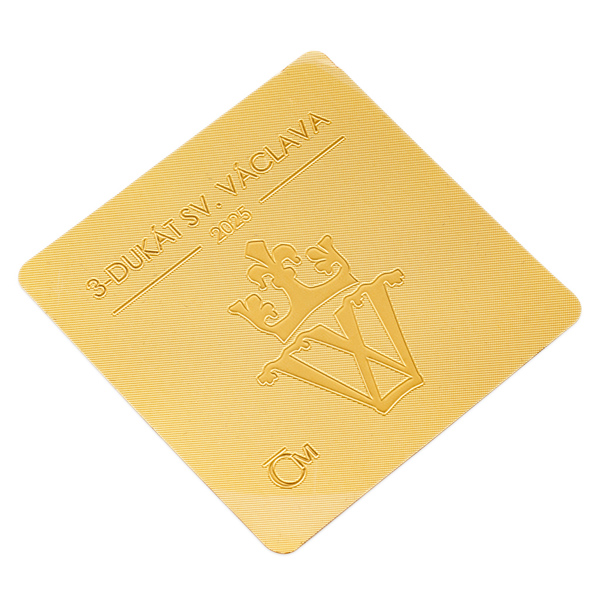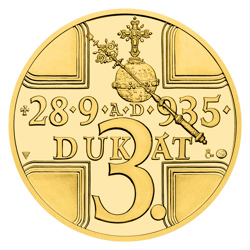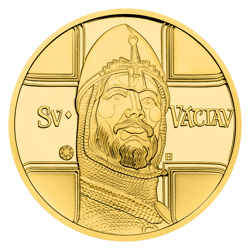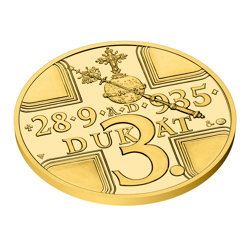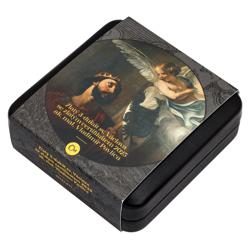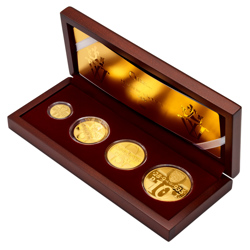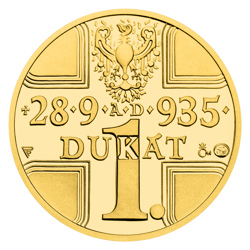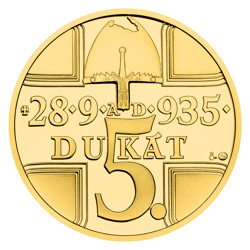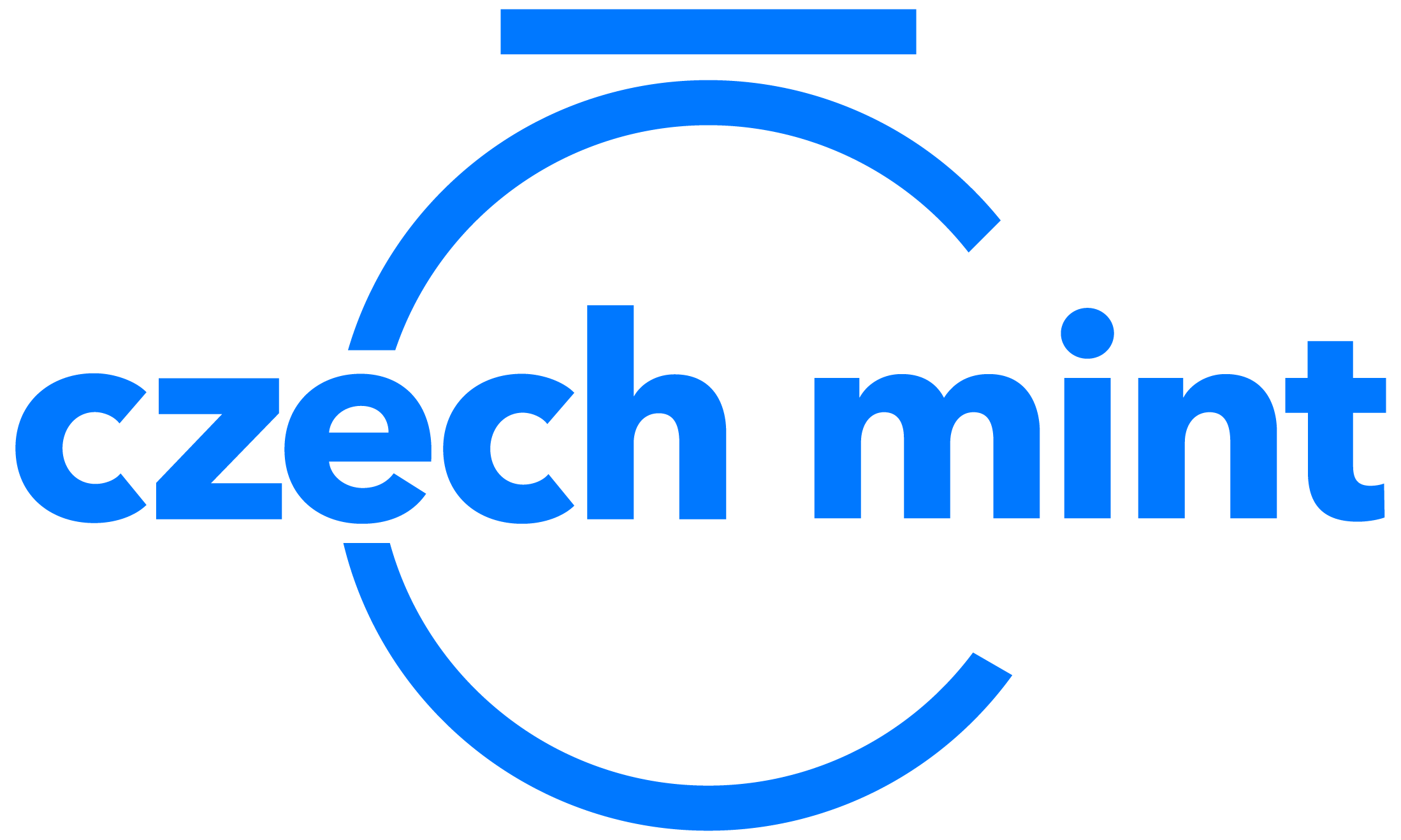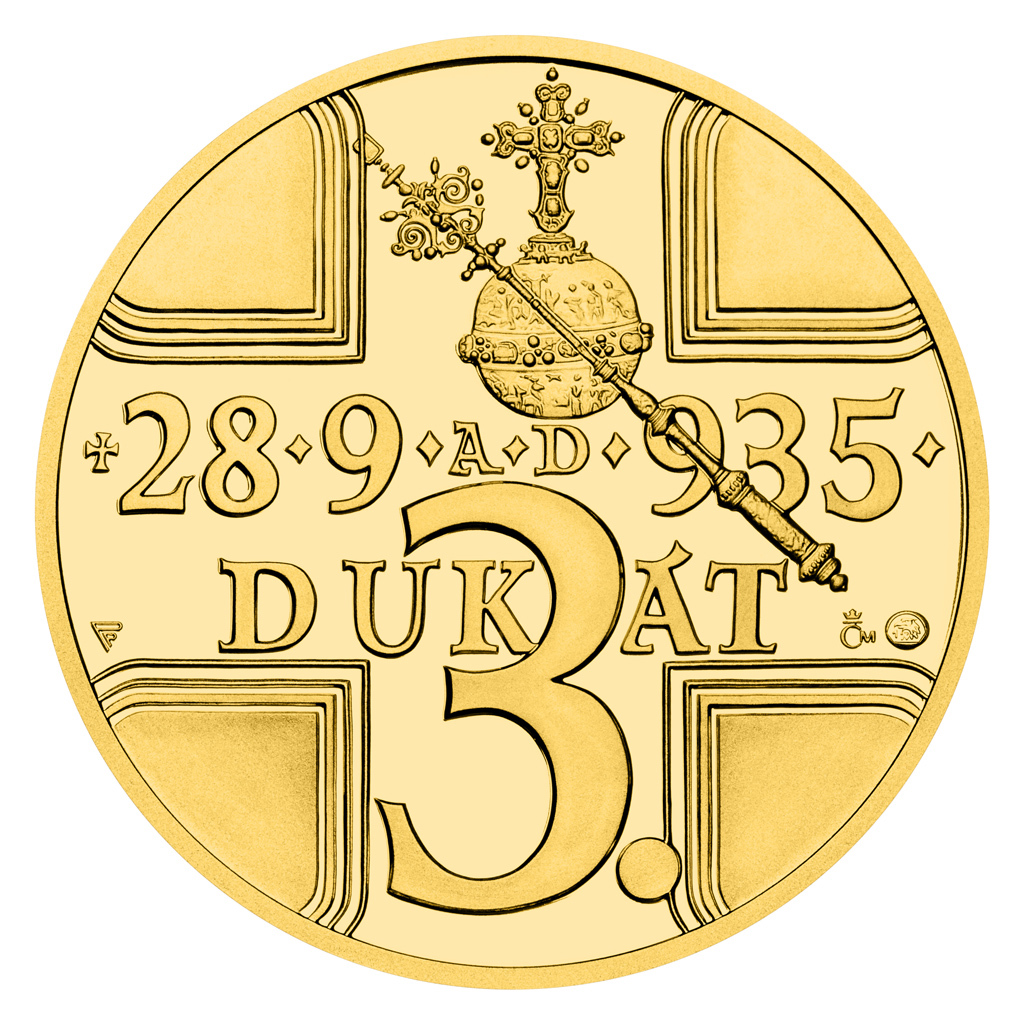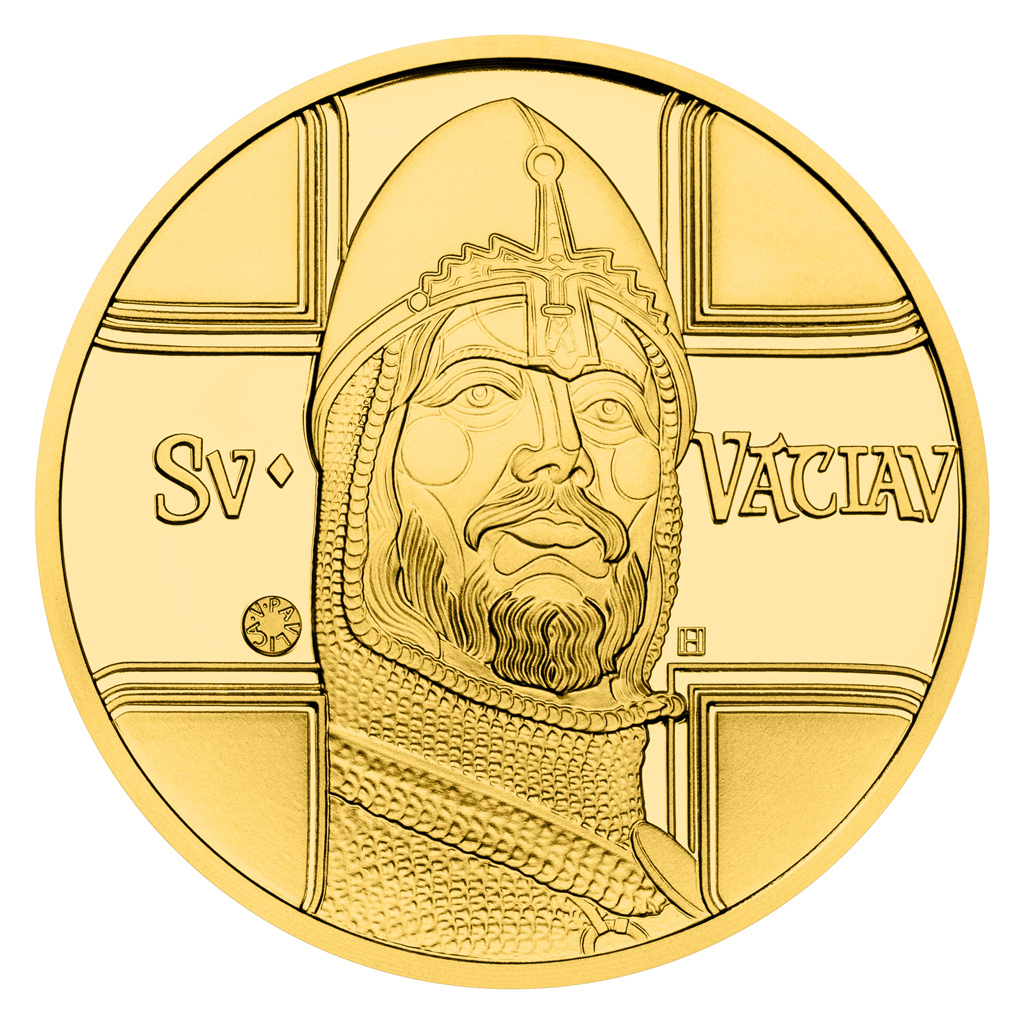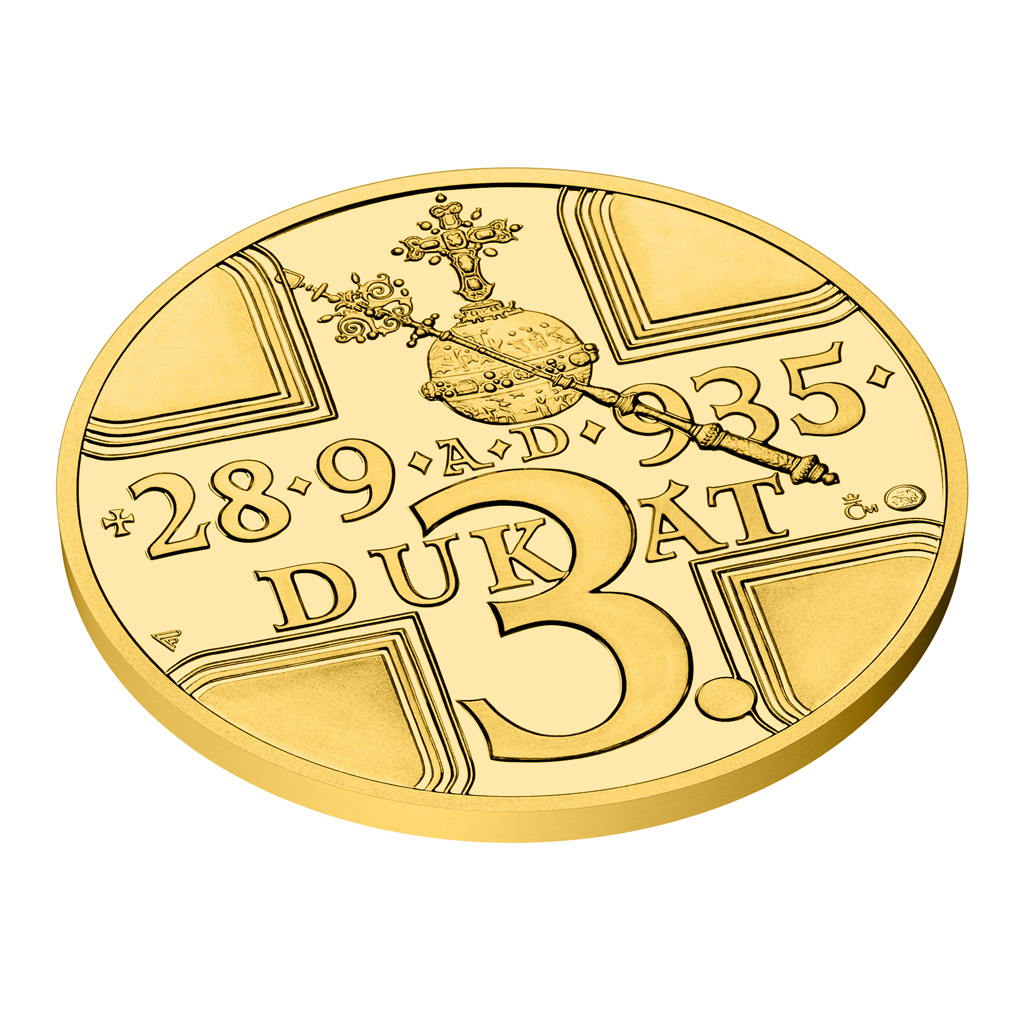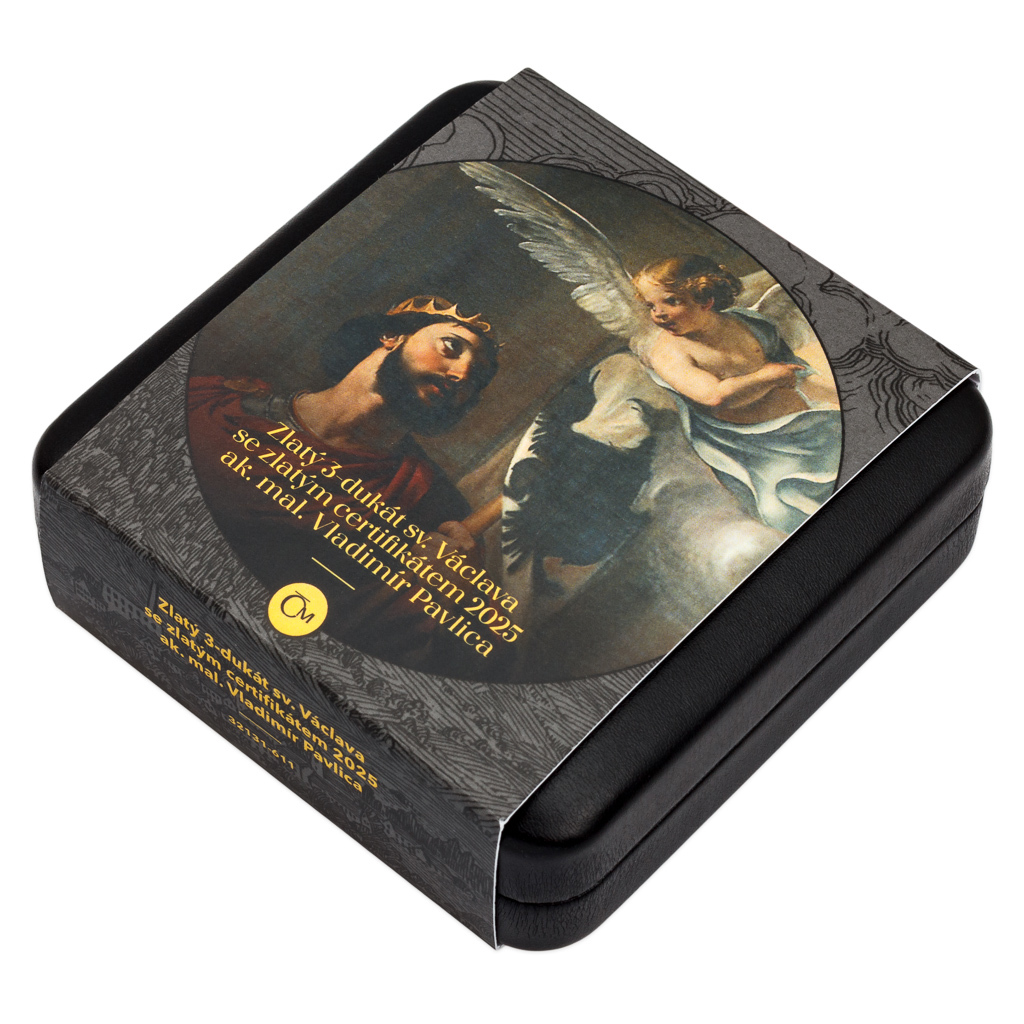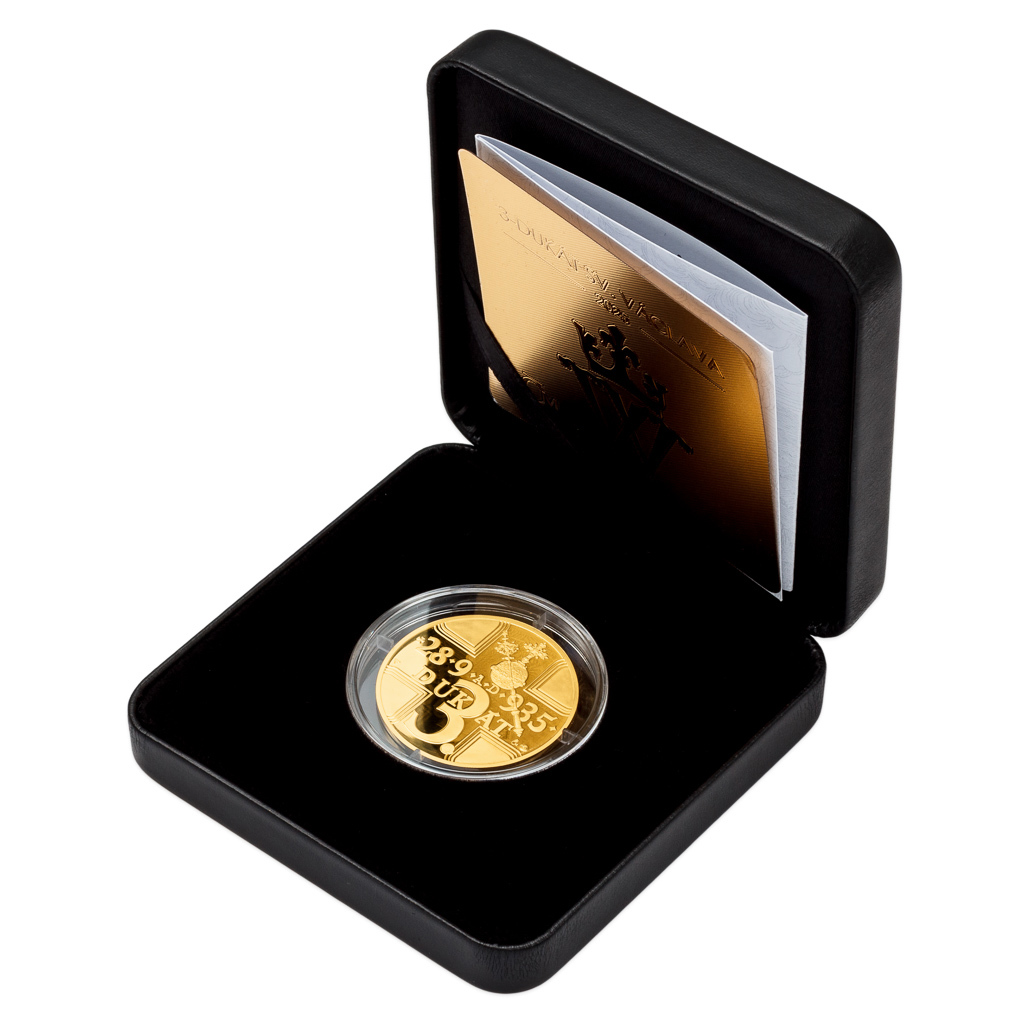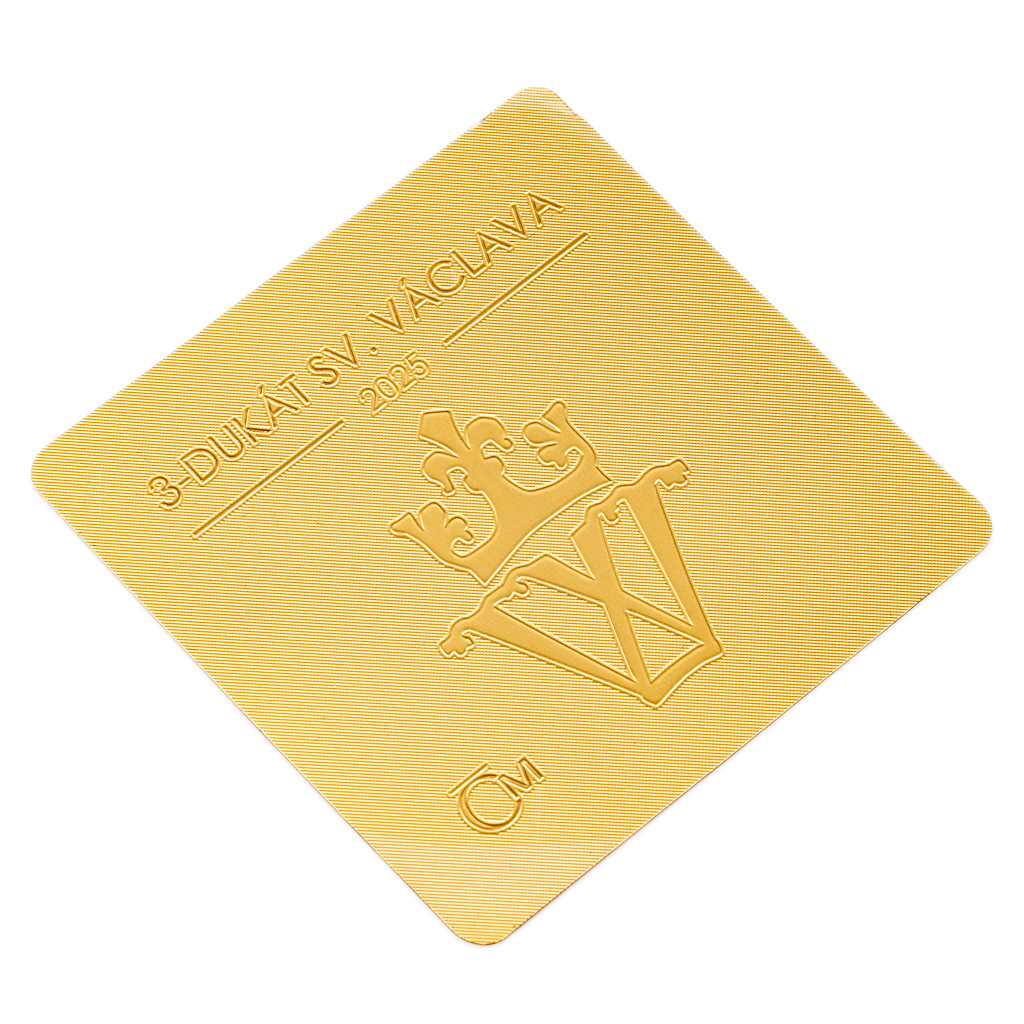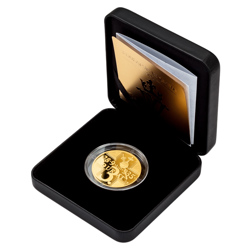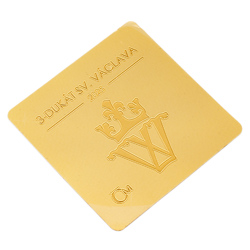Gold 3 ducat St. Wenceslas with golden certificate - Vladimír Pavlica proof
Personal pickup at the store
Product description
St. Wenceslas ducats play an extraordinary role in the history of Czech coinage. In 2025, the Czech Mint added a new gold three-ducat coin to the series.
Finance Minister Alois Rašín and his colleagues were thinking about how to celebrate the 5th anniversary of Czechoslovakia in 1923. They decided to revive the historical tradition of minting Czech gold coins, which dated back to the reigns of John of Luxembourg and Charles IV, and thus the First Republic St. Wenceslas ducats were created. They were designed by renowned artists Jaroslav Benda and Otakar Španiel. Alois Rašín, who was assassinated, had the eye-catching coin design depicting the patron saint of the Czech lands delivered to him in hospital, but he did not live to see it minted... The St. Wenceslas ducats of that time were so-called trade coins, which served as a store of value, but people quickly grew fond of them, especially as gifts for important events – for example, as a gift for a newborn, for graduation or for a wedding. It did not stop at ducats, whose binding specification was 3.49 g of gold with a purity of 986/1000 – their multiples were also minted in the form of two-ducats, five-ducats and ten-ducats. The new ducat coins minted by the Czech Mint are in a similar vein.
The obverse of the gold three-ducat coin features a cross composition dominated by the inscription 3DUKÁT, supplemented with the date of St. Wenceslas' murder, 28 September 935 AD (anno Domini – in the year of our Lord). The obverse side also features an apple and a sceptre – symbols of Czech rulers. On the reverse side, you will find a portrait of the prince in full armour, supplemented with the text SV. VÁCLAV. The design of the three-ducat coin is the work of academic painter Vladimír Pavlica, who sadly is no longer with us and did not live to see his work completed.
Ten years after their creation, the orphaned drawings were taken up by medal makers Petr Patka, DiS., and Jiří Hanuš, DiS., who transformed them into relief form.
Each coin is supplemented with a unique certificate covered with a layer of gold.
 čeština
čeština
 slovenčina
slovenčina
 english
english
